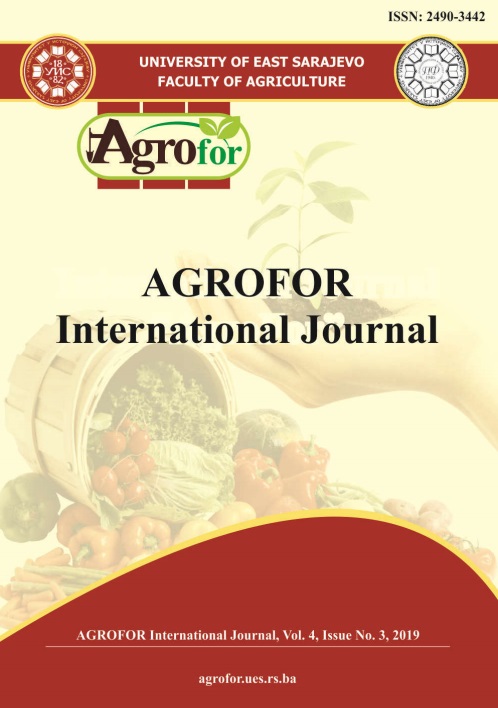STUDY OF THE SURVIVAL OF BACILLUS CEREUS IN LOW-ACID CANNED VEGETABLES
DOI:
https://doi.org/10.7251/AGRENG1903120YAbstract
The species B. cereus is widely distributed in food products and is often the cause of food poisoning. Therefore, data on the ability of this microorganism to develop in low-acid canned products are of scientific and practical interest. The aim of the
study was to determine the survival of B. cereus in low-acid canned vegetables stored at different temperatures. The objects of the study were industrial samples of aseptic canned carrot puree (pH = 5.11, aw = 0.912) and sliced beets sterilized in vacuumized polymer bags (pH = 5.43, aw = 0.887). The B. cereus 11778 strain was used. The listed products were contaminated daily culture of the test-strain, with a concentration of 104–105 CFU/ml, and incubated at 6 and 30°C for 26 days. Sampling of products was carried out every 3 days to identify viable microorganisms. The generally accepted methods of experimental microbiology were used. It was found that in the canned “Beet sliced” B. cereus died after 10 days of storing the product at a temperature of 30°C. At a storage temperature of the contaminated product equal to 6°C, the test-microorganism did not die during the whole experiment and was detected in the amount of tens CFU in 1 ml of the product. In aseptic canned carrot puree, regardless of the storage temperature, B. cereus remained viable throughout the experiment, i. e. 26 days. The approximation of the obtained numerical values showed acceptable convergence of the curves with experimental data (R2 = 0.9186 ÷ 0.985). Microscopic examination of Gram-stained B. cereus 11778 preparations isolated from contaminated samples of canned products during the experiment showed abundant sporulation of the teststrain. The research results can be used to predict the activity of B. cereus in canned vegetable products under various environmental conditions.

